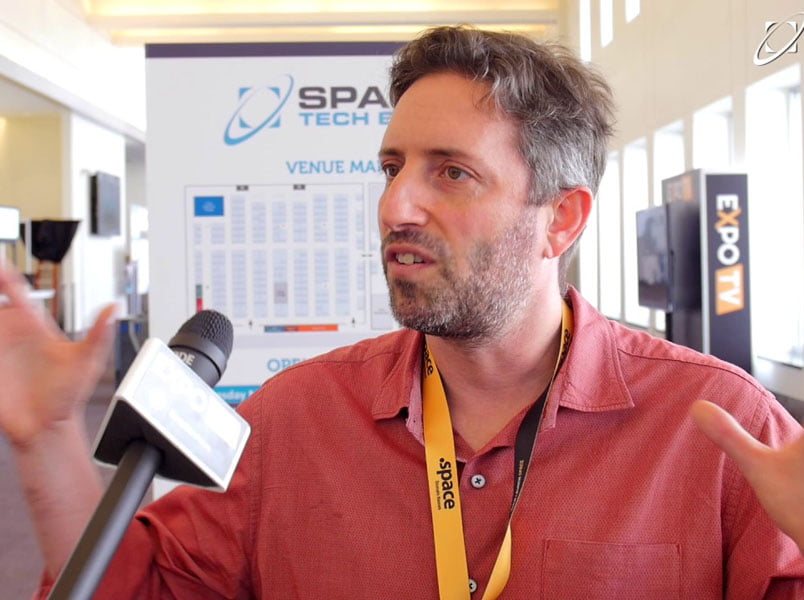Australian space sector startup Saber Astronautics has been given a $6 million grant via the government’s Space Infrastructure Fund to develop the national Mission Control Centre at the Lot Fourteen innovation precinct in Adelaide.
Called the Responsive Space Operations Centre – or RSOC – the facility will deliver next-generation mission control capabilities to Australia’s nascent space sector, with capabilities that include concurrent design, pre-flight testing, launch support, as well as live operations during flight.
“The Mission Control Centre will be a national capability designed to support the growth of all Australian satellites,” Saber Astronautics chief executive Jason Held told InnovationAus.
“Selecting an Australian company like Saber Astronautics, especially with our heavy investment in domestic space R&D shows that the Space Agency really is going to create a sovereign capability at home rather than just buying it off the shelf from overseas,” Dr Held said.
“But this is not just about sovereignty. I think it’s important for everyday Australians to see an example of what home-grown ingenuity can bring them.”

The RSOC will be housed on the ground floor of the McEwin Building at Lot Fourteen in Adelaide and have a baseline capability ready in six months. Lot Fourteen is also home to the Australian Space Agency.
The RSOC will work closely with to the Australian Space Discovery Centre, providing education to the public on the importance of Australia’s growing aspirations in space, as well as STEM opportunities.
Australians will be able to design their missions in the same place that they will fly and gain access to advanced operational capabilities.
The RSOC and its flight missions will be supported by a marketplace of telescopes and dish networks to track Australia’s future fleet of space craft. This is a new model for the local space sector to access dish capability from suppliers worldwide.
Dr Held said that Saber had engaged Deloitte as a sub-contractor to design secure business models related to this marketplace. Deloitte would also provide expertise in cybersecurity and system design.
Once completed the RSOC will support day-to-day mission control for SME space enterprises, using Saber’s technologies to reduce risk for investors. Australia has nearly 100 new space companies formed in the last three years and the Space Agency has the goal of growing to a $12Bn industry by 2030.
Saber Astronautics is based in the central Sydney suburb of Chippendale, but also has labs in Boulder Colorado and Colorado Springs.
Federal Industry Minister Karen Andrews said the new Mission Control Centre would help grow Australia’s space sector, which would play an important role in our economic recovery from the COVID-19 health crisis.
“People may question why focus on space when things are so tough here on Earth, but this is about investing in our future and developing an emerging industry which can grow our economy and create new jobs,” Minister Andrews said.
“The Mission Control Centre will support the creation of high-tech jobs and boost the growth of space-based communication technologies and services sectors.
“Space is also an incredible tool which can help other Australian industries to grow – from making our farmers more productive to giving our advanced manufacturers new supply chains to become a part of.”
Saber has been awarded $6 million from the Commonwealth to establish the facility, while the South Australian government will invest $2.5 million through the Adelaide City Deal – a 10-year agreement between the Australian and South Australia Governments and the City of Adelaide.
Dr Held told InnovationAus the prospects for the space sector in Australia remained strong and largely undiminished by the short-term impacts of the coronavirus economic challenges. The structural changes in the space industry, coupled with Australia’s political and geographical advantages put the sector in a strong position.
“Australia’s prospects are always going to be strong and, in this case, the changing landscape is slightly in our favour,” Dr Held said. “Silicon Valley investments decreased in 2019 even before COVID but we never noticed because ‘The Valley’ never invested in Australian space anyway.”
“So the question is more about whether the consumer needs have changed and if the way they buy things have changed,” he said. [And] consumers still need space. Consumers need data even more than ever.
“And here is Australia, rich with innovative talent, with a cadre of motivated space entrepreneurs, geopolitically the gateway to SouthEast Asia, now in high demand.”
Do you know more? Contact James Riley via Email.

